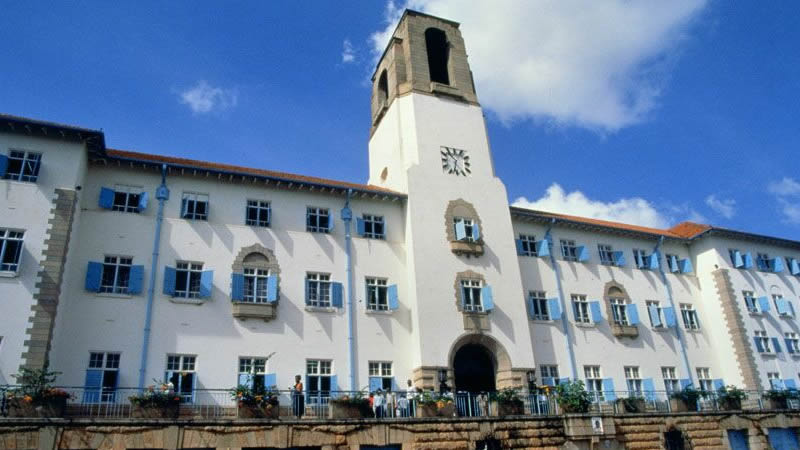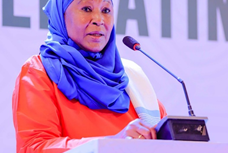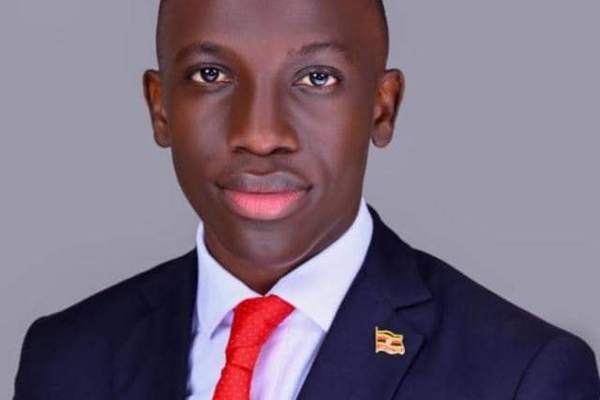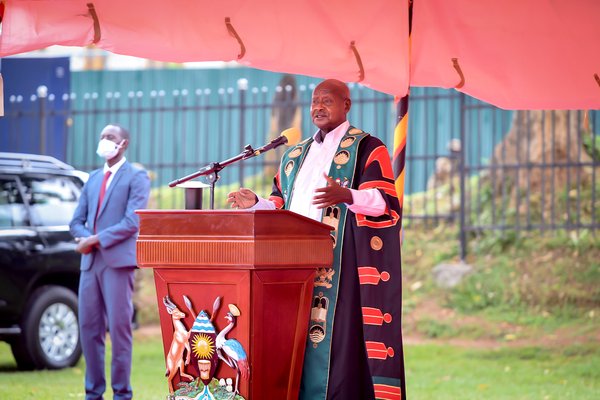By Immaculate Bazira, Nashiba Nakalyango and Mark Wamai
Makerere University has for many years worked towards ensuring it caters for equity and gender equality throughout the institution. No wonder the Gender Equality Policy was instituted in 2009 to mainstream gender in unit and management structures. This policy signaled the importance that Makerere places on gender issues in relation to its vision, mission, and core values.
As with all global causes, the fight for equity and gender equality in Uganda has had a number of faces worth celebrating, most notably Sara Nyendwoha Ntiro. In this spirit, a second historic tribute, known as The Sara Ntiro Annual Public Lecture, was held on 31st August, 2023 at Makerere University. The event served as a reminder of the progress made by Makerere University since 1945, when the college, then, opened its doors to the first female students, breaking long-held gender barriers. As one of the pioneers following this landmark move, Sara Ntiro's legacy endures beyond the gates of Makerere for in 1954, she went on to become Oxford University’s first female university graduate in East and Central Africa.
Celebrating a trailblazer
Therefore, what better way to further recognise and celebrate the trailblazing Sara Ntiro than have Her Royal Highness (HRH), Nnabagereka Sylvia Nagginda, the Queen of Buganda, deliver the keynote address at the second annual lecture. Based on the theme: “Catalyzing change”: Women as pillars of society, Nagginda’s keynote address noted that Ntiro’s impact is far-reaching and has inspired generations of women to break barriers that once confined their ambition.
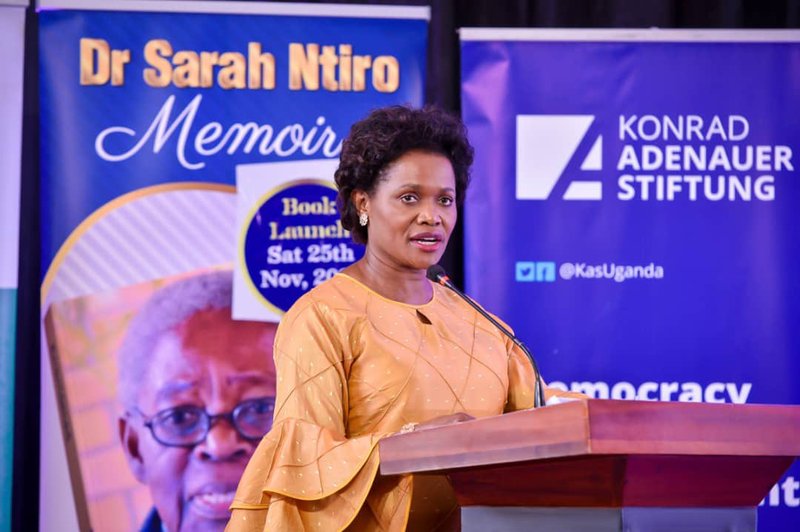
HRH Sylvia Nagginda, the Nnabagereka of Buganda delivering her keynote address.
“Going back in our history, some women (and men) have championed the right to education for girls and women. The inaugural Sara Ntiro memorial lecture dwelt on her outstanding achievements and contributions to society, and so I will not repeat them today, but rather bring out her peers Joyce Mpanga and Rhoda Kalema, as having been equally instrumental in catalyzing change in the social status of girls and women” Nagginda remarked.
She elucidated that during the cultural revolution in China, Mao Zedong stressed that “Women hold up half the sky”. She therefore appreciated the critical role that women’s organisations, initiatives and leaders have played in empowering women and enabling them to be active citizens, live dignified lives and thrive as human beings.
“An empowered woman is a better person, mother, worker and citizen capable of taking advantage of opportunities to contribute, lead, make change, have her voice heard and skills employed,” Nagginda explained.
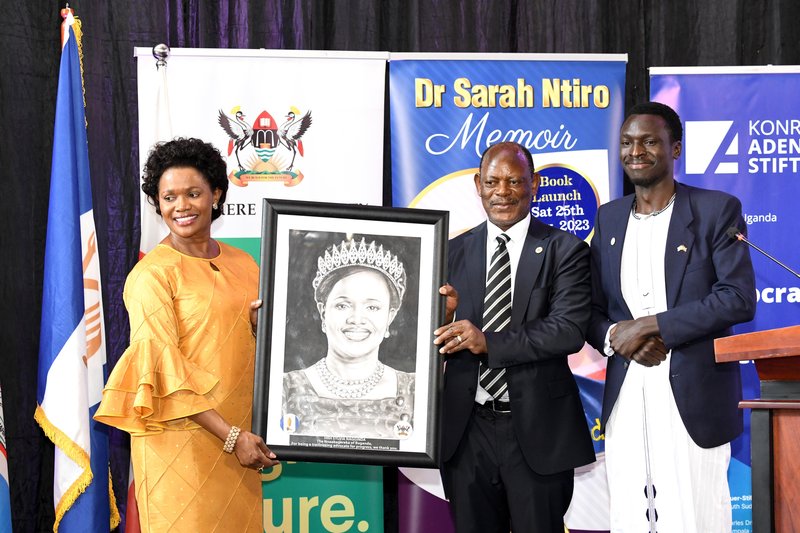
HRH Nnabagereka Sylvia Nagginda receiving a portrait from the Vice Chancellor, Prof. Barnabas Nawangwe (center). Right is the artist, Mr. Brian Ainamaani.
Equally important, the Nnabagereka stressed, was culture as a tool for development. Mindful of the patriarchal nature of African societies, she elaborated that the promotion of value systems based on Obuntubulamu ought to carefully separate positive cultural traditions from negative ones. Obuntubulamu is a traditional value system that “amplifies Ubuntu, which is the African philosophy that espouses inter-connectedness, humanity, dignity and communal living,” Nagginda explained.
Key life lessons
Keen to leave her audience with some take home points, the Nnabagereka furnished attendees with lessons from her own life, which resounded with the need to strengthen both men and women as pillars of society.
“Be a source of inspiration to others… Be confident… Have integrity… Love your neighbor… Be impeccable with your word… Do not take anything personally… and always do your best,” she counseled. The Nnabagereka concluded by reiterating that the world needs more Sara Ntiros, Joyce Mpangas, Rhoda Kalemas, and many other outstanding women in history.
The ripples that went out from the time the pioneer females landed at Makerere have over the decades grown into waves. Today, Makerere on average graduates more female than male students. Notable among these recent graduates, as mentioned by the Vice Chancellor, Prof. Barnabas Nawangwe in his address are Dr. Caroline Adoch, who became the first female to be awarded Makerere’s prestigious Doctor of Laws, and Dr. Olivia Nabawanda, who at 31 years became the youngest female to obtain a Ph.D. in Mathematics from Makerere.
“As remarkable as these achievements are, and not to take any credit away from the hard work of Dr. Adoch, Dr. Nabawanda, and their supervisors and mentors, they (these achievements) are a stark reminder that at slightly over 100 years of existence, Makerere can, and ought to do more,” added Prof. Nawangwe.
Beyond the keynote address, the annual lecture was enriched by a panel discussion. Among the panelists was the Late Sara Ntiro’s granddaughter, Martha Kiiza Kalema, who recalled a moment at her graduation dinner where her grandmother, Sara Ntiro mentioned that her dreams had been fulfilled through her academic accomplishments at Makerere with a degree in Mathematics. Sarah Ntiro, despite her love for the subject, opted out of her Mathematics class when the teacher vowed not to teach until she left. She was the only female in the class of 32.
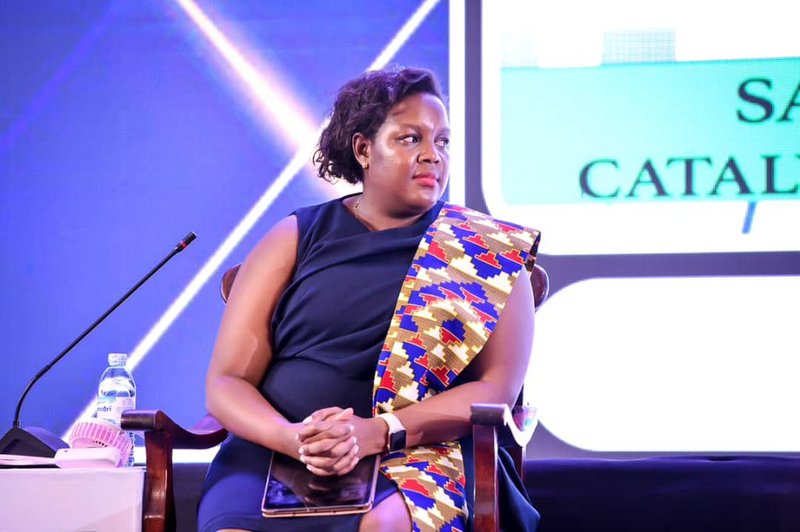
Ms. Martha Kiiza Kalema, granddaughter of Sarah Ntiro, at the lecture.
Kalema shared that her family is commemorating Ntiro’s legacy with a newly registered Sara Ntiro Akiiki Foundation with a vision for inclusive, equitable, and quality education in rural Africa. This will be followed by the launch of her memoir on 24th November, 2023.
Learning from the stories of others
Anna Resmann, the Country Representative for Konrad Adenauer Stiftung Uganda and South Sudan was also a panelist at the lecture. She echoed the need for our generation and all the women to come to celebrate and learn from stories of women worldwide who paved the way for others.
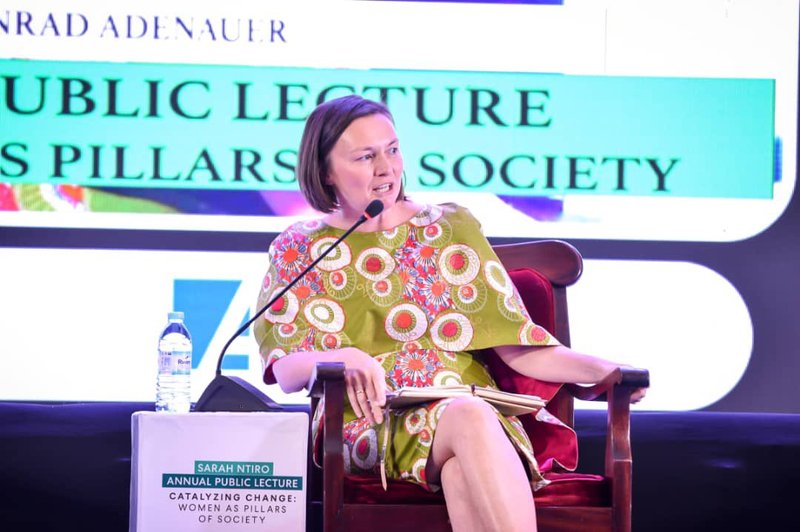
Ms. Anna Resmann, the Country Representative for Konrad Adenauer Stiftung Uganda and South Sudan
“We need to know and acknowledge what they have done so that we can take on this work and continue by working hard and being dedicated,” Resmann emphasized.
Panelist Ms. Elsie Attafuah, the Resident Representative of UNDP in Uganda stressed that "Catalyzing change means African women must tell the African women story in a powerful way.”
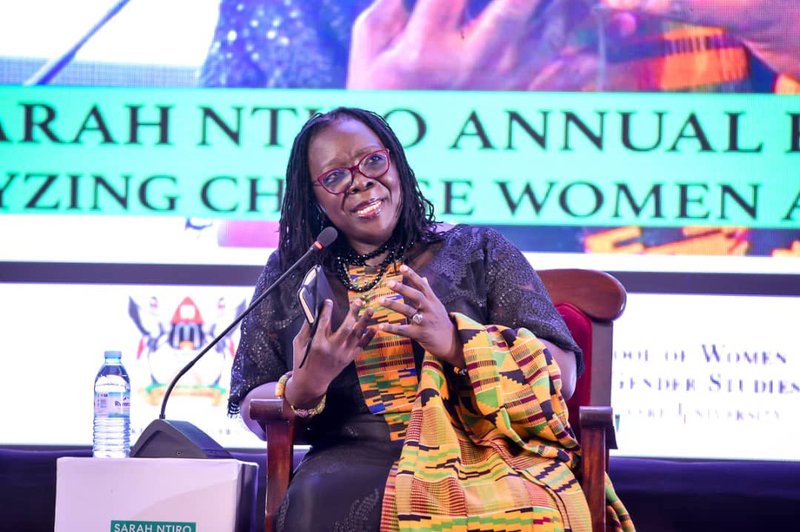
The Resident Representative of UNDP in Uganda, Ms. Elsie Attafuah contributed during the panel discussion.
She further disclosed that the United Nations Development Program (UNDP) in Uganda is promoting the African Free Trade Area by focusing on connecting African women to regional markets to create access to both markets and good quality African produce.
The night was indeed a celebration of how far women have come, and a call to ensure more is done to uplift them in the different fields of life, especially education.
Related News
![]() Please join hands with the Makerere University Endowment Fund as it works towards attracting & retaining the best faculty, providing scholarships, and investing in cutting-edge research and technology.
Please join hands with the Makerere University Endowment Fund as it works towards attracting & retaining the best faculty, providing scholarships, and investing in cutting-edge research and technology.
